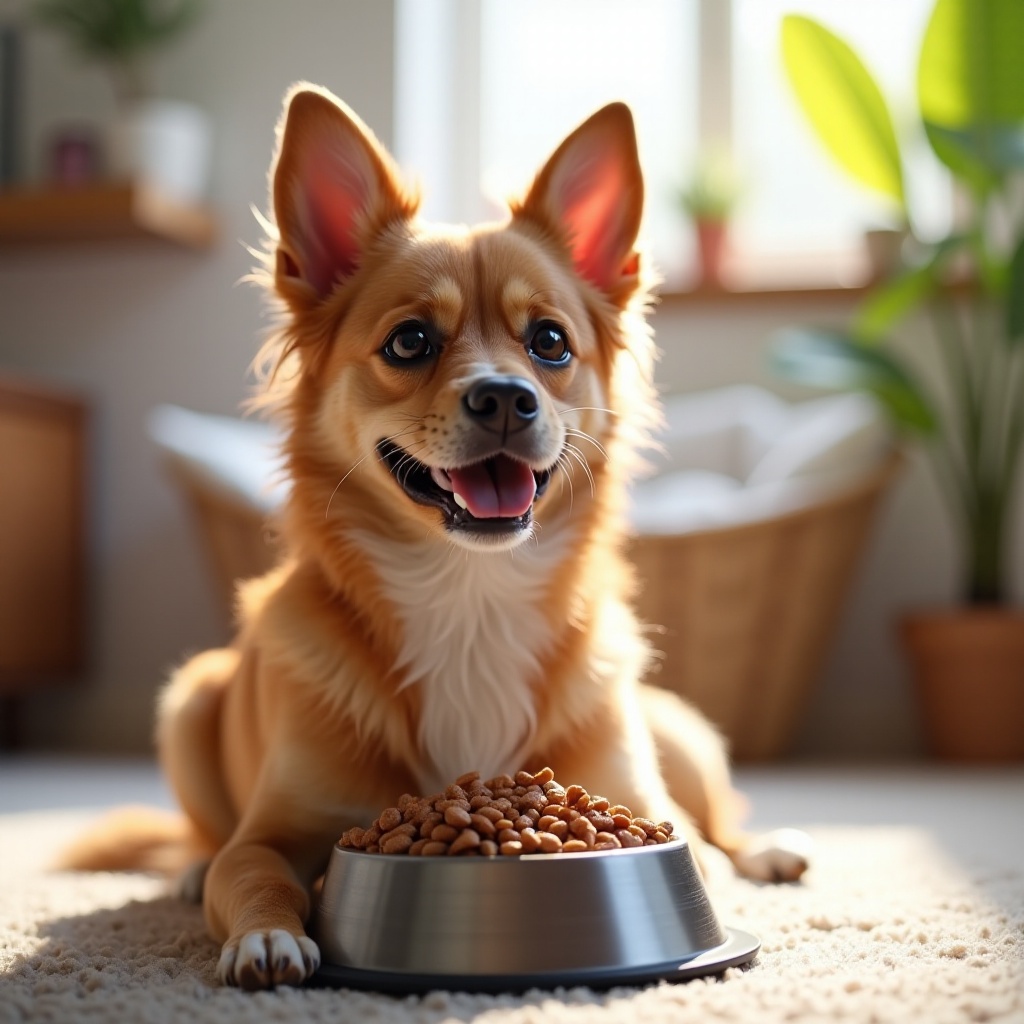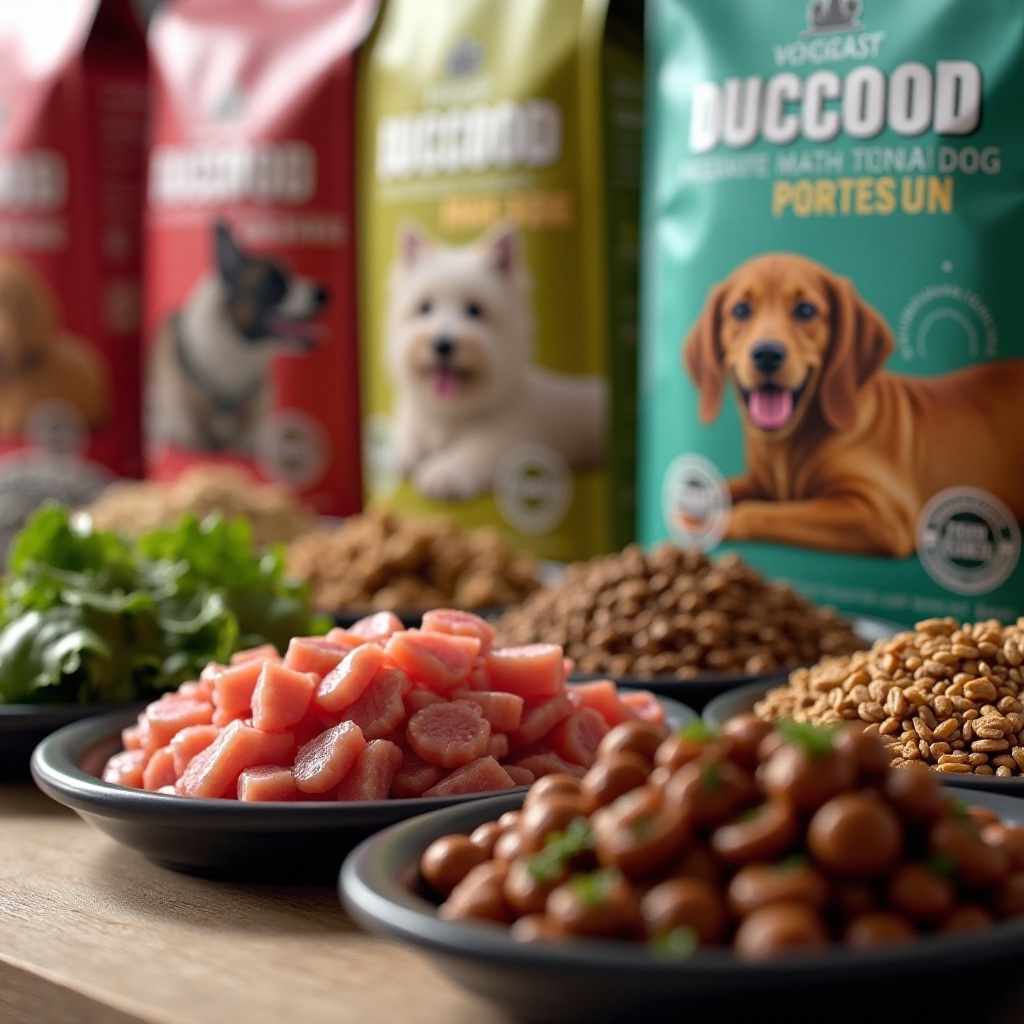Introduction
Your small breed dog deserves the best when it comes to diet, health, and nutrition. Choosing the right dog food can make all the difference in ensuring their longevity and overall well-being. With a plethora of options available, selecting a suitable food brand can be overwhelming.
This blog aims to provide comprehensive insights into the best diet dog food for small breeds, covering everything from their unique nutritional needs, recommended brands, key ingredients, and special diet considerations to handy DIY recipes and feeding tips. Let’s dive into getting your small furry friend the best possible diet.

Nutritional Needs of Small Breed Dogs
Small breed dogs, generally weighing less than 20 pounds, have specialized nutritional requirements differing from their larger counterparts. Their unique metabolism and high energy levels need food formulas catering specifically to their needs.
Firstly, small breeds have faster metabolisms. As a result, they burn calories quickly and require nutrient-dense food packed with high-quality proteins and fats to sustain their energy. Include vital vitamins and minerals like calcium, phosphorus, and omega-3 fatty acids, essential for bone health, dental strength, and coat condition.
Secondly, small breed dogs often face dental issues. Smaller kibble sizes not only fit their jaws better but also help maintain dental hygiene by reducing plaque and tartar buildup. Look for foods designed for dental health, including added textures or ingredients that promote teeth cleanliness.
Finally, adequate fiber is crucial for their digestion. This ensures their gastrointestinal tract remains healthy, preventing common problems like constipation or diarrhea. Balanced fibers and probiotics also aid in better nutrient absorption.
Top Recommended Brands and Products
Best Overall Diet Dog Food
Hill’s Science Diet Small Paws
Hill’s Science Diet Small Paws formula is specifically crafted for small breed dogs. With high-quality chicken meal as the first ingredient, coupled with antioxidant and vitamin E & C blend, it supports a robust immune system for your small friend. Hill’s is known for its consistent top-tier nutritional quality.
Best Grain-Free Dog Food
Blue Buffalo Freedom Grain-Free
For pet owners advocating a grain-free diet, Blue Buffalo Freedom stands out. It features real chicken as the primary protein, combined with peas and potatoes offering digestible carbohydrates. Their LifeSource Bits – a precise blend of vitamins and antioxidants, promote overall health and balanced nutrition.
Best for Weight Management
Royal Canin Small Weight Care
Concerned about weight issues? Royal Canin’s Weight Care for small breeds provides an excellent option. This formula is designed with controlled calorie levels and L-carnitine, aiding in fat metabolism. The high protein content ensures your dog maintains muscle mass while shedding excess weight.
Transitioning from discussing specific brands, we’ll now explore what ingredients you should look for and avoid in your small breed dog’s diet. This helps ensure they get the nutrition they need without harmful substances.
Ingredients to Look For and Avoid
To ensure your small breed dog receives the best nutrition, focus on ingredients:
Look for:
– High-quality proteins (chicken, beef, lamb)
– Healthy fats (fish oil, flaxseed)
– Digestible carbohydrates (sweet potatoes, brown rice)
– Essential vitamins and minerals (Vitamin E, Omega-3 fatty acids)
– Probiotics and fiber for gut health
Avoid:
– Artificial preservatives (BHA, BHT)
– Fillers (corn, soy, wheat)
– By-products or unnamed meat meals
– Artificial colors and flavors
Understanding which ingredients to look for and avoid helps you make informed choices. Next, we’ll dive into special diet considerations that might apply to your small breed dog, including grain-free options and hypoallergenic foods.

Special Diet Considerations
Grain-Free Diets for Small Breeds
Grain-free diets have surged in popularity among pet owners concerned with allergies or intolerances. These diets focus on alternative carbohydrates like potatoes and peas, preventing common allergens such as wheat and corn. Although beneficial for dogs with specific sensitivities, always consult your vet before transitioning to ensure your dog receives a balanced and complete diet.
Hypoallergenic Options for Sensitive Stomachs
Small breeds are prone to food sensitivities and allergies. Hypoallergenic dog foods, like those with novel proteins (duck, venison), often bypass allergies linked to common proteins like chicken or beef. Brands like Purina Pro Plan provide hypoallergenic options focusing on digestibility and gut health. Look for limited ingredient diets (LID) to minimize the risk of allergy triggers.
Special diet considerations can greatly help dogs with specific needs. However, some owners prefer to make homemade meals for complete control over ingredients. Let’s see how you can prepare DIY dog food for your small breed dog.
DIY Dog Food: Recipes and Tips
Incorporating homemade dog food can ensure your small breed receives wholesome and fresh ingredients. Here’s a simple recipe to get you started:
DIY Dog Meal: Chicken and Veggie Delight
- 1 cup cooked, shredded chicken
- ½ cup brown rice
- ½ cup mixed vegetables (carrots, peas)
- 1 tbsp fish oil
- A dash of calcium supplement
Mix ingredients thoroughly and serve in appropriate portion sizes depending on your dog’s weight. Always consult your vet before trying new homemade recipes to ensure balanced nutrition.
While homemade meals can be beneficial, feeding practices are equally important in maintaining your dog’s health. Let’s explore some essential feeding tips for small breeds.
Feeding Tips for Small Breeds
Feeding small breeds involves more than just choosing the right food. Correct feeding practices ensure optimal health:
- Portion Control: Feed small, frequent meals to avoid overeating and maintain steady energy levels.
- Consistent Feeding Schedule: Maintain consistent timings to regulate digestion and energy distribution.
- Hydration: Provide fresh water alongside every meal to keep them hydrated.
- Monitor Weight: Adjust portion sizes as necessary to prevent obesity.
- Dental Health: Consider mixing dry and wet food to help maintain dental hygiene.
With these feeding tips, you can optimize your dog’s diet to support their health and vitality.

Conclusion
Ensuring your small breed receives the best diet involves a comprehensive understanding of their unique needs, selecting appropriate brands, and focusing on beneficial ingredients. With proper attention to their nutritional and feeding requirements, you can contribute to their health, vitality, and happiness.
Frequently Asked Questions
What ingredients should I avoid in my small breed dog’s food?
Avoid artificial preservatives, fillers like corn, soy, and wheat, unnamed meat meals, and artificial colors and flavors in your dog’s food.
How often should I feed my small breed dog?
Feed small breed dogs 2-3 smaller meals per day to maintain consistent energy levels and prevent overeating.
Is grain-free food better for small breeds?
Grain-free foods are beneficial for dogs with specific allergies or intolerances. However, consult your vet to determine if it’s suitable for your dog’s dietary needs.
